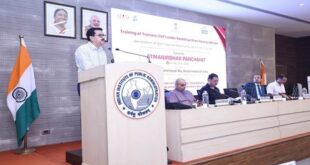- Recently, the Supreme Court issued a notice to the Centre and states to respond to a petition to enforce the Fundamental Duties of citizens, including patriotism and unity of the nation, through comprehensive, well-defined laws.
- Fundamental Duties are specified under Article 51A (Part IVA) of the Constitution, they strive to uphold the country’s ideals and contribute to its growth and betterment.
- The idea of Fundamental Duties is inspired by the Constitution of Russia (erstwhile Soviet Union).
- These were incorporated in Part IV-A of the Constitution by the 42nd Constitutional Amendment Act, 1976 on the recommendations of the Swaran Singh Committee.
- Originally 10 in number, one more duty was added through the 86th Constitutional Amendment Act, 2002.
- Like the Directive Principles of State Policy,the Fundamental duties are also non-justiciable in nature.
List of Fundamental Duties:
- To abide by the Constitution and respect its ideals and institutions, the National Flag and the National Anthem,
- To cherish and follow the noble ideals that inspired the national struggle for freedom,
- To uphold and protect the sovereignty, unity and integrity of India,
- To defend the country and render national service when called upon to do so,
- To promote harmony and the spirit of common brotherhood amongst all the people of India transcending religious, linguistic and regional or sectional diversities and to renounce practices derogatory to the dignity of women,
- To value and preserve the rich heritage of the country’s composite culture,
- To protect and improve the natural environment including forests, lakes, rivers and wildlife and to have compassion for living creatures,
- To develop scientific temper, humanism and the spirit of inquiry and reform,
- To safeguard public property and to abjure violence,
- To strive towards excellence in all spheres of individual and collective activity so that the nation constantly rises to higher levels of endeavour and achievement, and
- To provide opportunities for education to his child or ward between the age of six and fourteen years (added by the 86th Constitutional Amendment Act, 2002).
Way Forward
There is a need for a uniform policy for the “proper sensitisation, full operationalisation and enforceability” of fundamental duties which would “substantially help citizens to be responsible”.
SOURCE: THE HINDU,THE ECONOMIC TIMES,MINT
 Chinmaya IAS Academy – Current Affairs Chinmaya IAS Academy – Current Affairs
Chinmaya IAS Academy – Current Affairs Chinmaya IAS Academy – Current Affairs



